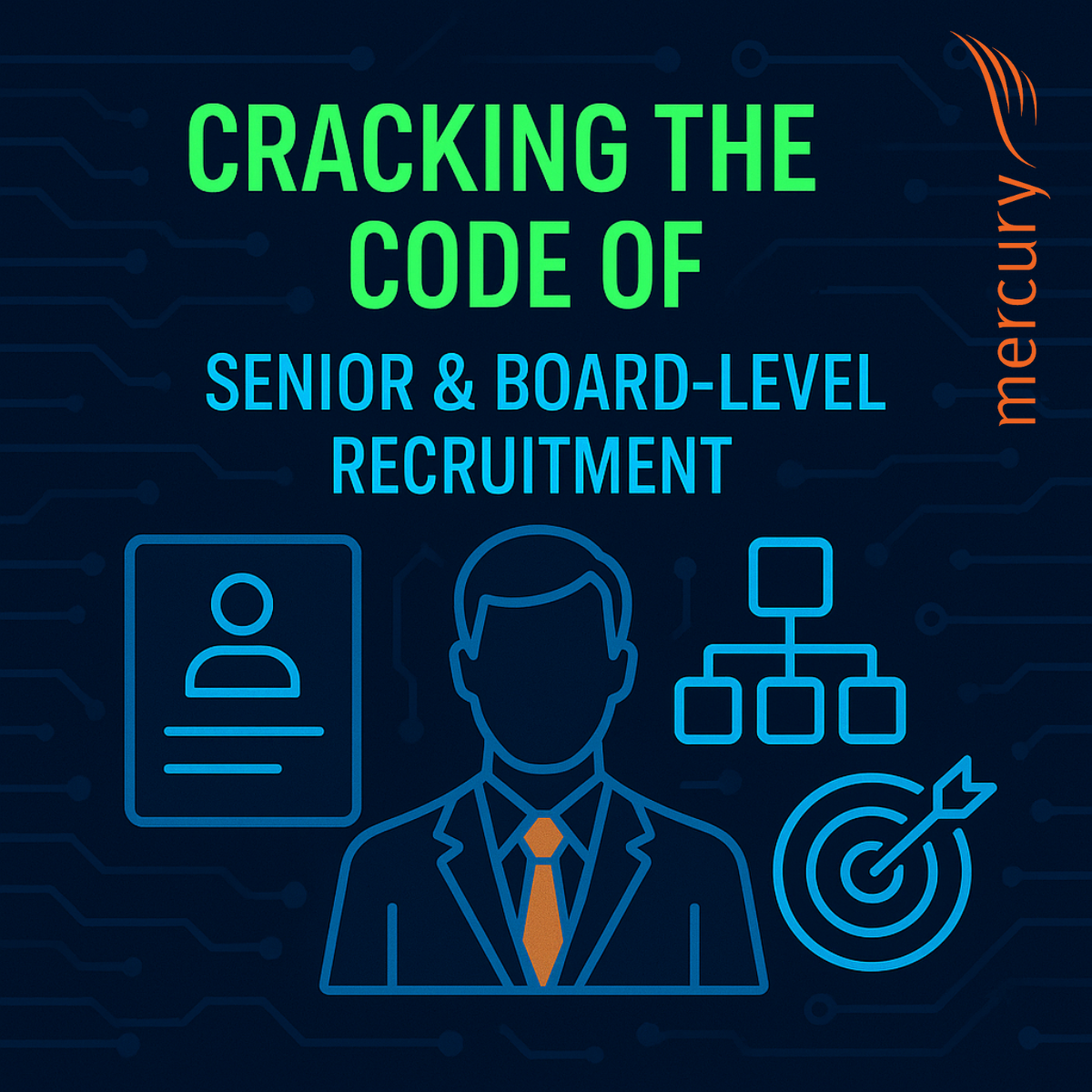
Cracking the Code of Senior & Board-Level Recruitment
Recruiting at senior and board level is a completely different ball game compared to hiring for other roles. At the entry or mid-level, recruitment often feels straightforward and even mechanical. The question is usually practical: does this person have the right skills, knowledge, or contacts to do the job?
That’s because, while we all want engaged employees who think for themselves, most people are still working within the framework and direction of others. In fact, employment law even defines a “worker” in those terms.
But climb higher up the ladder, and the rules of recruitment shift dramatically. At the top, technical expertise and functional knowledge stop being the differentiator; they’re the minimum requirement, the “barrier to entry.” What really sets exceptional leaders apart are the less tangible qualities: drive, resilience, integrity, vision, and, crucially, the ability to inspire and lead others.
And here’s the kicker: people who combine these qualities are rare. Add cultural fit, alignment with your company’s goals, and the unique challenges your business faces, and your talent pool shrinks even further. You won’t find these leaders by trawling CVs or simply headhunting from competitors.
Why Looking at Competitors Isn’t Enough
Poaching from a direct rival may sound like the easy option but rarely delivers a like-for-like match. Every organisation has its own culture, structure, and dynamics. Plus, do you really want someone who will just replicate what your competitor is already doing? True leadership means moving your business ahead, not copying the playbook.
That’s why senior recruitment should start with a specification (not a shortlist). Ask the tough questions first:
What functional and specialist skills do we actually need?
What challenges are we facing?
Where do we want the business to go, and what kind of leader will get us there?
How will they bring our people along with them?
Once you’ve nailed the specification, the search can begin.
Why a Specialist Recruiter is Your Best Friend
While your network is a great starting point, most companies will need to lean on a reputable specialist recruiter. A good recruiter brings a broader, deeper network, and crucially, objectivity. They’ll look beyond your horizons and may present candidates who feel unconventional at first glance but could ultimately deliver more value than the obvious choices.
And when it comes to shortlisting, remember, technical competence is table stakes. The best leaders aren’t necessarily the best technicians, they’re the ones who can assemble, inspire, and lead a brilliant team.
Timing and Momentum Matter
Once you’ve identified the right candidates, the process needs to move quickly. A specialist recruiter can usually deliver a shortlist within four weeks. Employers should aim to complete interviews and assessments within another four. Drag your feet, and you risk losing momentum or worse, the candidate’s interest. Time your approaches wisely around seasonal breaks, and keep communication open throughout. Nothing kills enthusiasm like silence.
Building the Right Package
When it comes to making an offer, balance is everything. Yes, top performers command a premium. But a bloated, short-term-heavy package creates unrealistic pressure and can even encourage the wrong behaviours. On the flip side, packages weighted entirely toward the long term can feel uninspiring.
The sweet spot? A flexible, evolving package that combines quick wins with meaningful long-term rewards, tailored to the individual and their role. People’s priorities shift over time, your benefits and incentives should too. Having the offer delivered by an enthusiastic Specialist Recruiter is invaluable: At board level, relationships matter more than anything. Having a recruiter handle delicate back-and-forth ensures the employer and candidate can start their working relationship on the right foot, without having clashed over negotiations.
Retention: More Than Legal Clauses
Companies often rush to lawyers when worried about senior leaders moving on. And while protecting IP and commercial secrets is important, relying on non-competes is shaky at best. The smarter strategy is focusing on retention: positive culture, meaningful incentives, and opportunities for growth.
Longer notice periods can also provide protection, but pragmatism is key. When someone resigns, don’t take it personally. Treat them with professionalism and manage the exit constructively. If you’re the incoming employer, don’t expect or encourage unethical behaviour from your new hire. Short-term wins aren’t worth the long-term risk.
Succession Planning: The Real Game-Changer
Finally, the best way to reduce recruitment headaches? Succession planning. In theory, this means having someone ready to step up - but in practice, especially for SMEs, it’s rarely that simple. Holding spare leaders in waiting is expensive and can cause frustration.
A more practical approach is building resilience into the business. Spread knowledge and skills across teams so you’re never reliant on a single individual. That way, you can “hold the fort” long enough to find the right external candidate or develop a rising star internally.
The Bottom Line
At senior and board level, recruitment is less about skills and more about leadership, vision, and cultural fit. It’s about finding the person who can take your business further. That means being clear about your needs, moving quickly, balancing rewards, and thinking long term about succession and retention.
Senior recruitment isn’t easy, but done right, it can be transformative.









